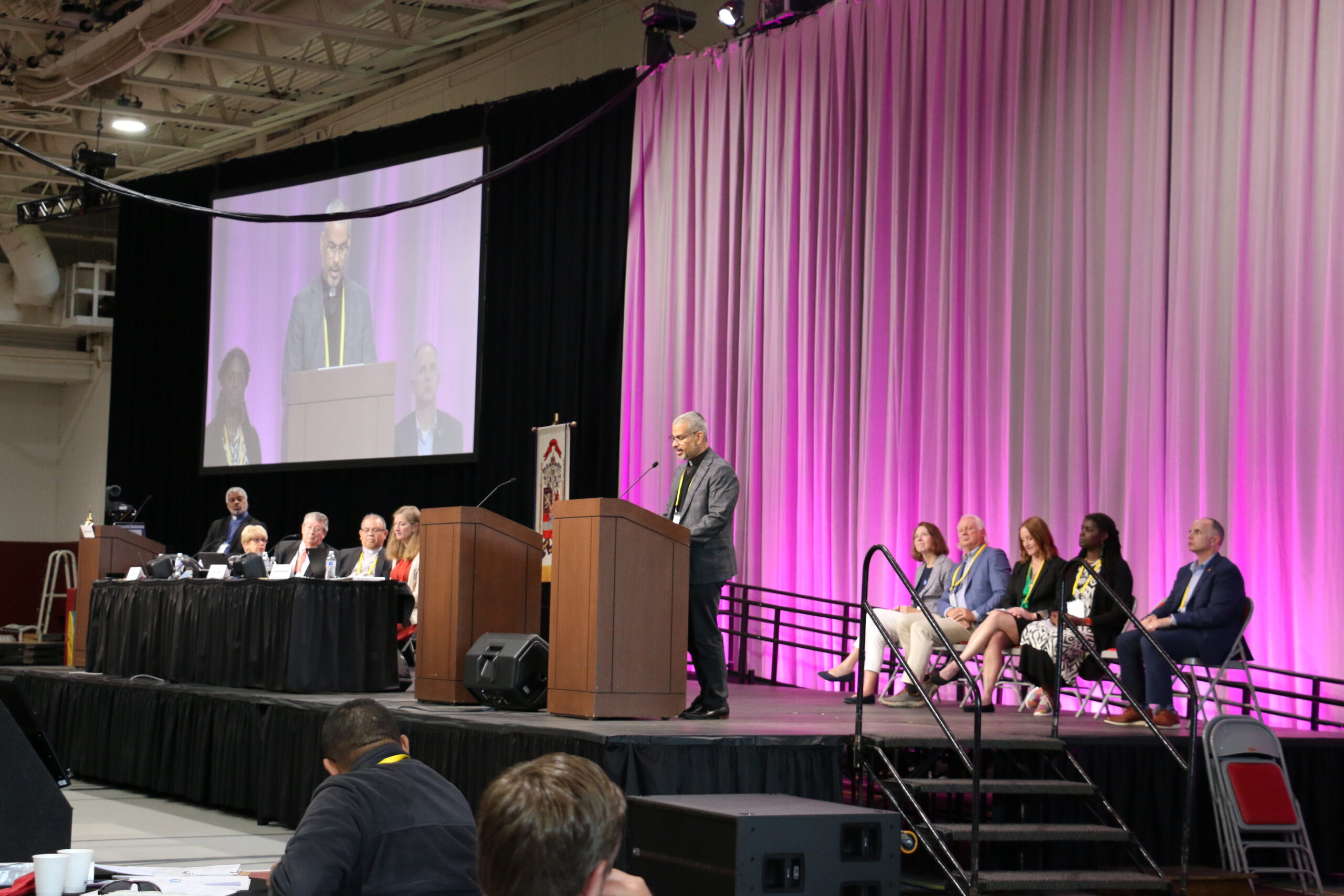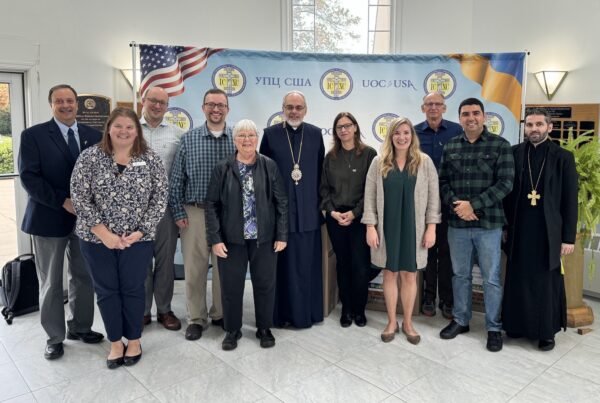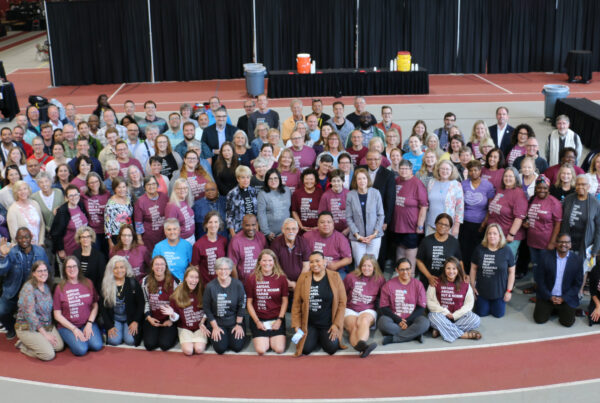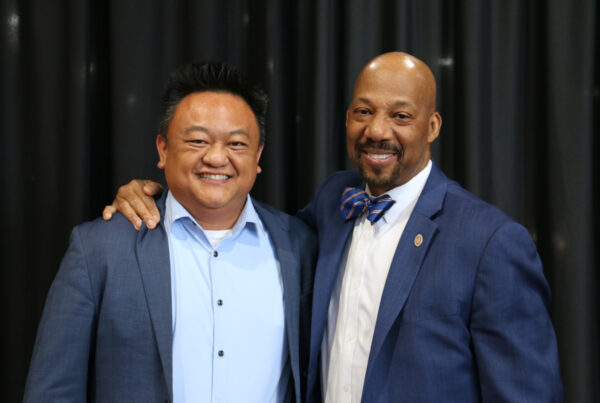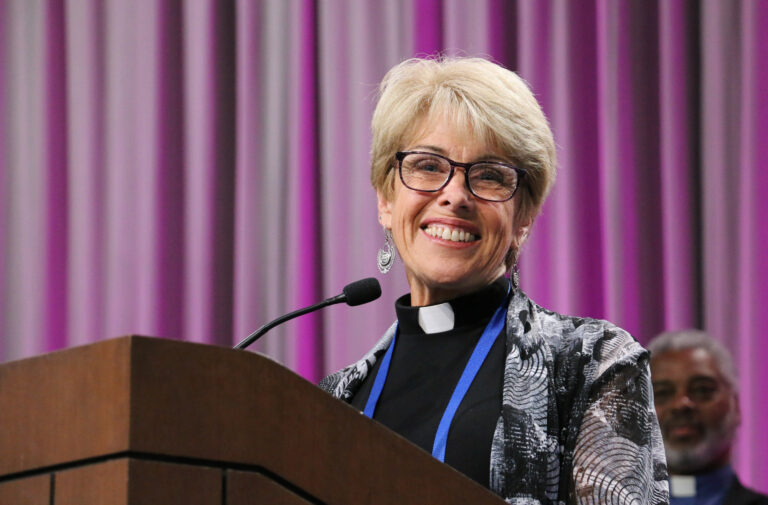
Rev. Judy Nelson elected president of General Synod
After serving for a year as General Synod vice president, Rev. Judy Nelson was the sole nominee for the office of General Synod president. After being elected, she invited the denomination into a community of intimacy, saying, “We as believers become intimate with the one to whom we pray, for whom we pray, and with whom we pray. I invite us all into that type of intimacy.” Notably, Nelson is the fifth woman to hold the office in the history of the RCA. She will be installed as president during General Synod closing worship on Tuesday.
Four nominated for synod vice president
The newest synod vice president will be elected Tuesday morning.
Election to the office of vice president is a three-year commitment to the work of the General Synod, General Synod Council, and the Board of Benefits Services. After serving at the pleasure of or in the absence of the president in the first year, the vice president is typically the sole nominee for president the following year.
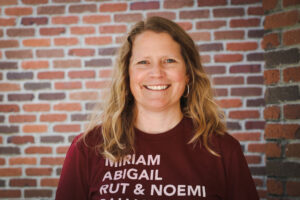
Rev. Dr. Miriam Barnes is co-pastor of Second Reformed Church in Zeeland, Michigan. She previously served as pastor of Reformed Church of Canajoharie in Canajoharie, New York, and associate pastor of young families at Second Reformed Church in Zeeland, Michigan. Barnes is a graduate of Calvin College and Western Theological Seminary (M.Div, 2008, D.Min, 2022). She has previously served on the Ministerial Formation Certification Agency (MFCA) board, and currently serves on the MFCA certification committee. In addition to holding multiple positions in pastoral ministry, Barnes says leading her church through a pastoral crisis prepared her to serve as vice president, noting it “[taught] me the importance of helping everyone’s perspective to be part of current reality.” She and her husband, Eric, have two daughters.
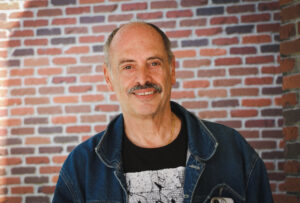
Rev. Dr. Carlos Rivera is pastor of Iglesia del Redentor in Brooklyn, New York, where he has served since 1984. Rivera is a graduate of The City College of New York (BA, MA), New Brunswick Theological Seminary (M.Div), and Knox Theological Seminary (D.Min). Rivera has previously served on the Commission on Nominations. One experience he says has prepared him for the role of vice president is his five years as a school teacher and his four years as a mentor. He and his wife, Gladys, have three daughters and nine grandchildren.

Rev. Joshua Scheid is pastor of Massapequa Reformed Church in Massapequa, New York, and stated clerk of Nassau Suffolk Classis. He is a graduate of University of Connecticut and Western Theological Seminary. “As a pastor and stated clerk, my heartbeat is to serve and strengthen our local churches for ministry and mission, but it has also been a true privilege serving as moderator of the Commission on Church Order the last three years – listening to, learning from, and doing our best to facilitate the breadth of multi-ethnic, multi-cultural ministries across the RCA,” he says. Scheid and his wife, Kathryn, have two daughters and are expecting a third in October.
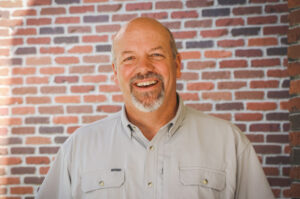
Rev. Troy Van Beek is a transitional minister, currently serving First Reformed Church in Sibley, Iowa. He has pastored churches in Iowa, Michigan, and Minnesota, and served as GSC staff on the RCA’s development team for four years. Van Beek is a graduate of Northwestern College and Western Theological Seminary. He is a member of the Commission on Christian Worship since 2018, has served as president of East Sioux Classis, and is currently the vice president for East Sioux Classis. “I have a passion for the local church and a concern that many have created organizations that they will not be able to maintain as the world and the culture change around them,” he says. “Everything these churches have learned about doing church has not prepared them for what is ahead. God has called me to come alongside and encourage creativity and experimentation.” Van Beek and his wife, Pam, have a daughter and son-in-law.
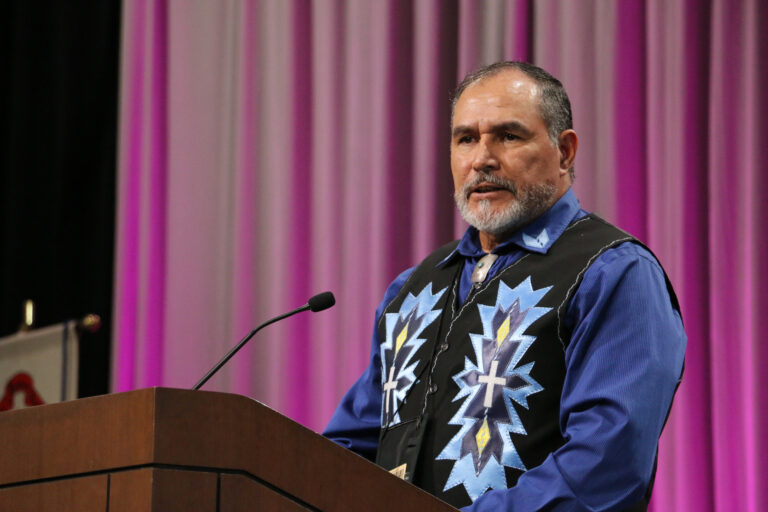
Edwin Rivera highlights unity and the power of Christ’s love in Monday morning worship
As he described the historical impact of government wrongdoing and tribal conflict in a Native American community, minister Edwin Rivera said, “We have to be the light in God’s kingdom, of love and unity.” So many are hungry to experience Christ’s love, he said, encouraging connection and relationship with Native American sisters and brothers. Monday morning worship was led by members of Native American Indigenous Ministries: Ina Montoya, Harry Anthony Nauni, Edwin Rivera, Brenda B. Soliz, and Mefaunwy Whitehorse.
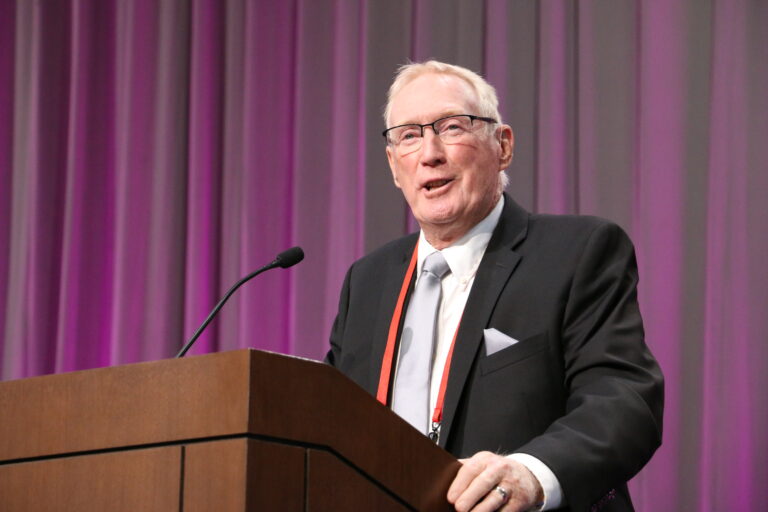
Shifts in Theological Education within the RCA
Following the ratification of amendments to the Book of Church Order (BCO) that define the roles of the classis and the theological agents in the ordination more clearly, the two seminaries, the Ministerial Formation Certification Agency (MFCA), and the Pastoral Formation Oversight Board (PFOB) took the stage on Monday to bring clarity to and speak in support of the changes.
During the MFCA report on Monday afternoon, interim director Dave Schutt shared his excitement for how the shift in the way MFCA functions will enable the RCA to extend hospitality to new churches and leaders wanting to join the denomination. “It’s a time of change. It’s a time of transition, and in many places and in many ways within our denomination,” said Schutt, “Personally, I’m very excited about that. I believe that God is doing some fantastic new and wonderful things among us. I believe there is a very bright future. I believe as we walk in faith we will be able to experience that future together.”
Shifts in theological education also include alterations made to the distribution of the theological education assessment, a call for further discussion on the training and inclusion of commissioned pastors in the RCA, and changes to the process for preparing candidates for ordination.
Read more on the changes to theological education in the RCA.
Additional guidance provided for restructuring team
Monday afternoon, the synod floor filled with restructuring team–related discussion arising from the report of the Advisory Committee on Overtures and New Business.
The synod approved a recommendation aimed at strengthening the team’s communication over the next year, instructing the restructuring team “to review their process to ensure there are adequate opportunities for all parties to provide input and to continue to strive for open, transparent, and communicative conversation.”
Delegates also instructed the restructuring team to “consult with the Commission on Theology, the Commission on Church Order, and the General Synod professors of theology around the issue of practical theology as the formal expression of our doctrinal convictions.”
The delegates held a brief discussion regarding the evaluation of the two systems of government at work within the RCA (“the centralized and directed government of the General Synod Council [through Carver governance] and the widely conversational and bottom-up government of our historic polity”), and requested the Commission on Church Order to review the systems and bring recommendations to the synod in 2025.
Delegates debated at length a motion to extend the work of the restructuring team by a year, but ultimately voted it down.
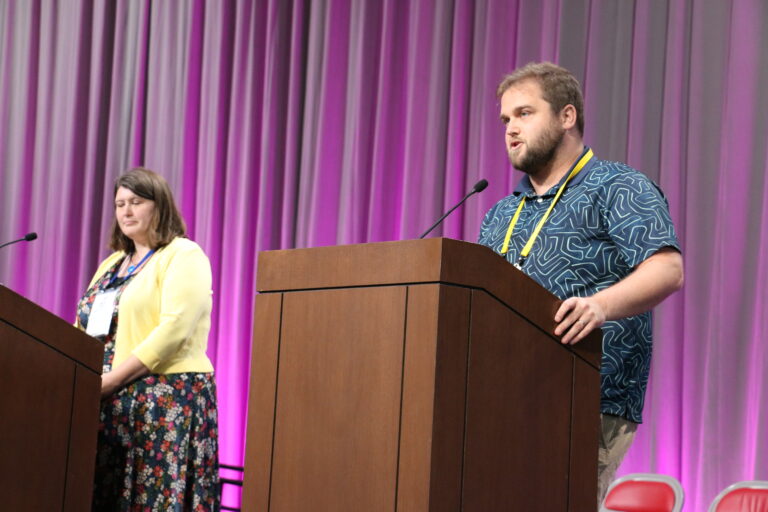
Workers rights and spiritual abuse at the focus of Christian Action report
The Commission on Christian Action (CCA) brought before the synod seven recommendations within the context of its role of calling the church to faithful and persistent witness and action in the world. Four primary topics were given to the General Synod for consideration.
Workers rights: After a cordial discussion about the merits and concerns of various types of employment, including payroll employees and independent contractors, the synod voted to urge congregations and members to treat those in their employ as employees rather than independent contractors, as well as to urge participation in unemployment insurance (U.S.) and employment insurance (Canada).
Delegates voted affirmatively on an amended recommendation to form an ad hoc committee to seek further understanding and transparency around the use of nondisclosure agreements and unemployment insurance (U.S.) for denominational staff.
Peace in the Holy Land: Three recommendations were adopted addressing peace in the Holy Land. At each future gathering of General Synod, there will be a time for prayer dedicated to peace in the Holy Land, until peace has finally come. The synod will also urge classes and congregations to begin the study of the conflicts in the Holy Land, attempting to understand each side of the conflict. General Synod 2023 voted to express its gratitude to Rev. Liz Testa, Rev. Dr. Josh Vis, and Sally Vis for their leadership in hosting a Holy Land trip in 2022, and directed the GSC staff to broadly publicize future opportunities.
Purchase from the companies of indigenous peoples: Synod voted to encourage all bodies and individual members of the RCA to consider making purchases from businesses owned by indigenous peoples. Resources will be made available on the RCA website.
Spiritual abuse: In its report, the CCA noted the harm that has been inflicted by religious leaders using their power and position to spiritually abuse others. Corresponding delegate Riana Shaw Robinson shared, “So much of the work that I’m doing right now is trying to separate the harm that has been caused when the Bible has been used for violence rather than an invitation to love and transformation.” A lengthy debate ensued about whether or not the recommendation should commend resources from the commission’s report. An amendment was made to encourage use of those resources, as well as others. The motion passed as amended.
Other business
- Ecumenical delegates shared greetings and encouragement from partner denominations and two ecumenical organizations of which the RCA is a member: the Christian Reformed Church in North America, the Evangelical Lutheran Church in America, the Presbyterian Church (U.S.A.), the United Church of Christ, the World Communion of Reformed Churches, Christian Churches Together in the U.S.A., and the National Council of Churches. Learn more about the RCA’s ecumenical partnerships.
- Synod heard reports from four of its commissions: Christian Unity, Race and Ethnicity, Women, and Christian Action.
- Delegates voted to initiate conversations with the Ukrainian Orthodox Church in the USA to consider how to support the church in Ukraine in light of the ongoing war.
Monday photos
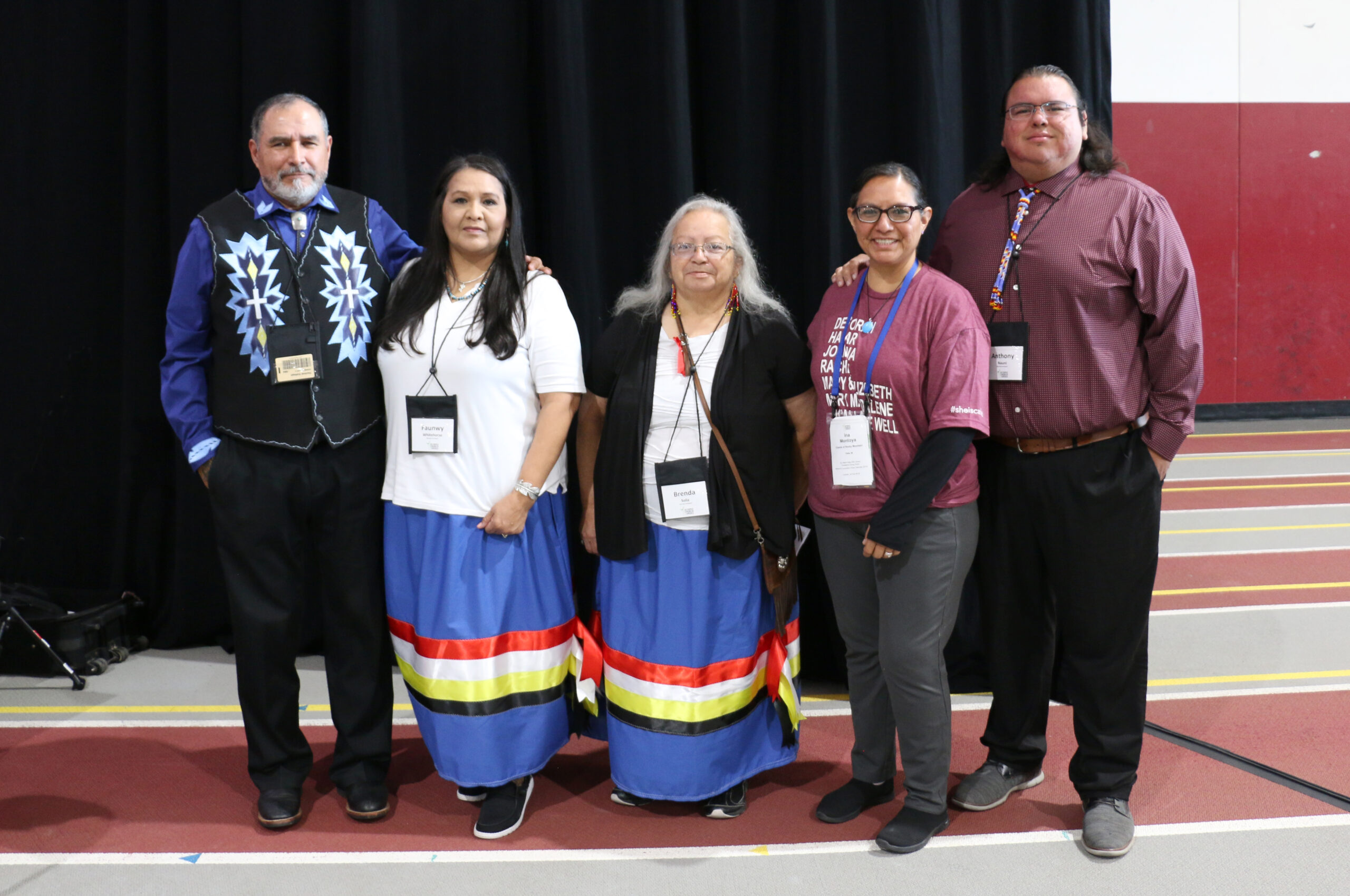
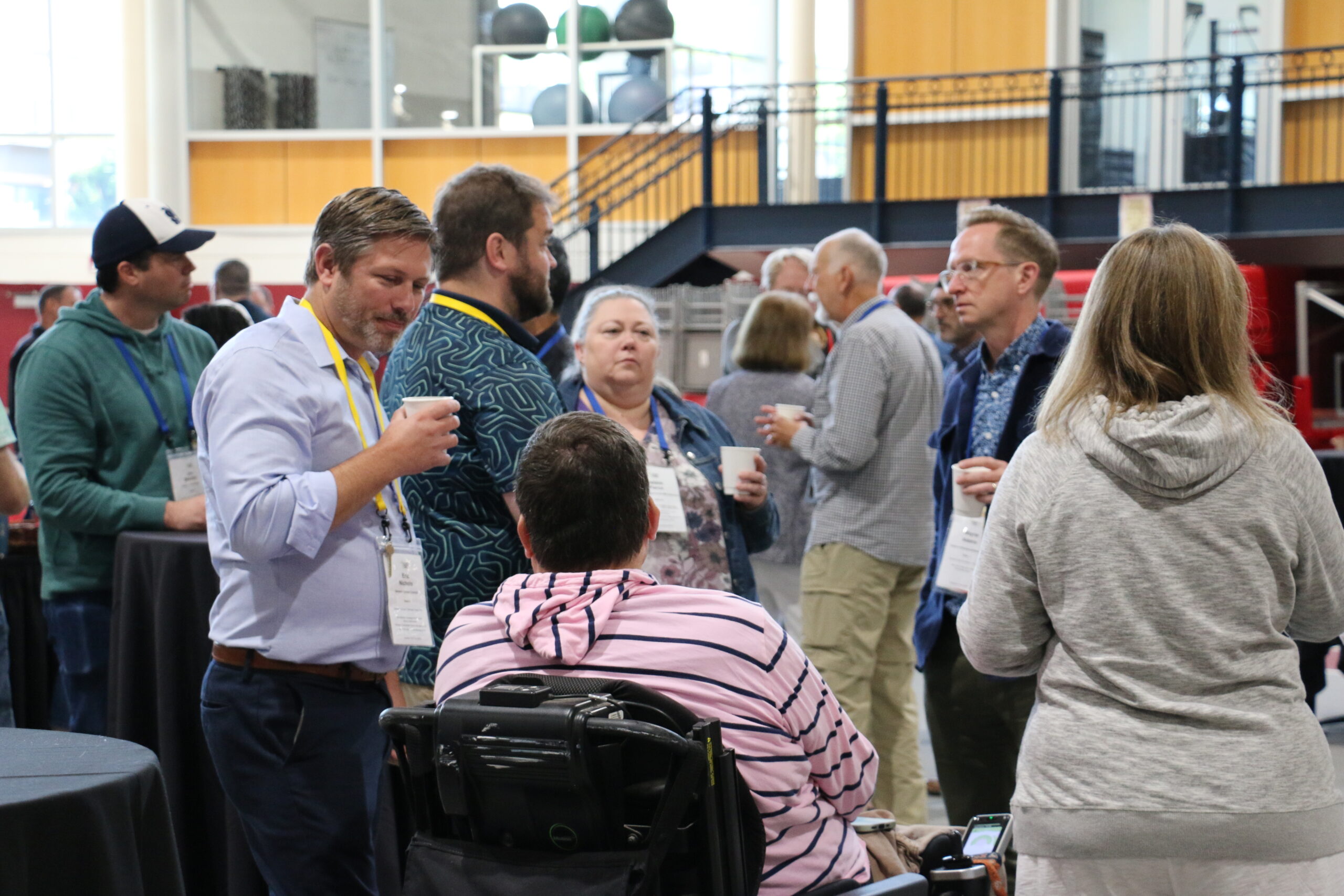
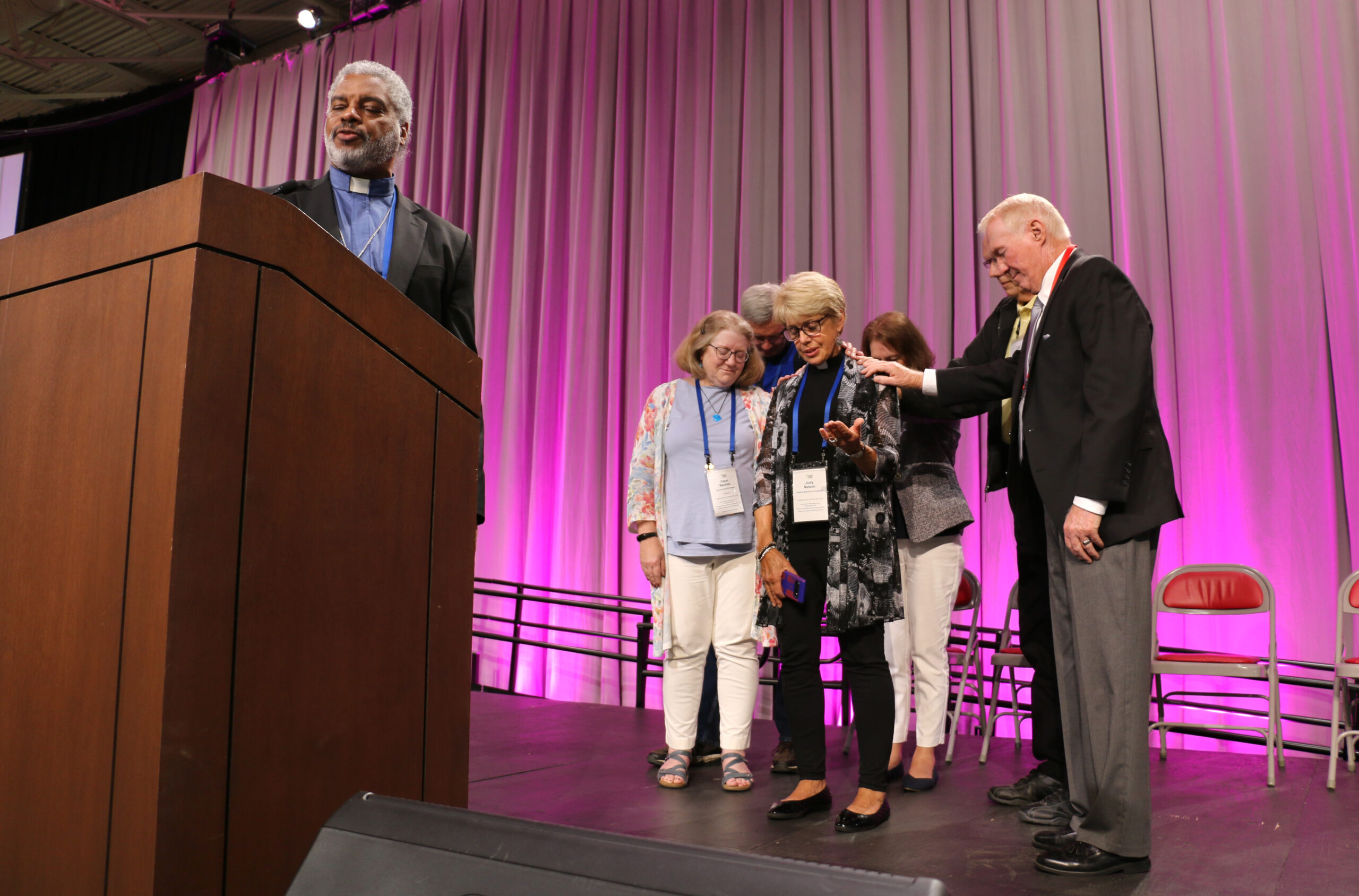
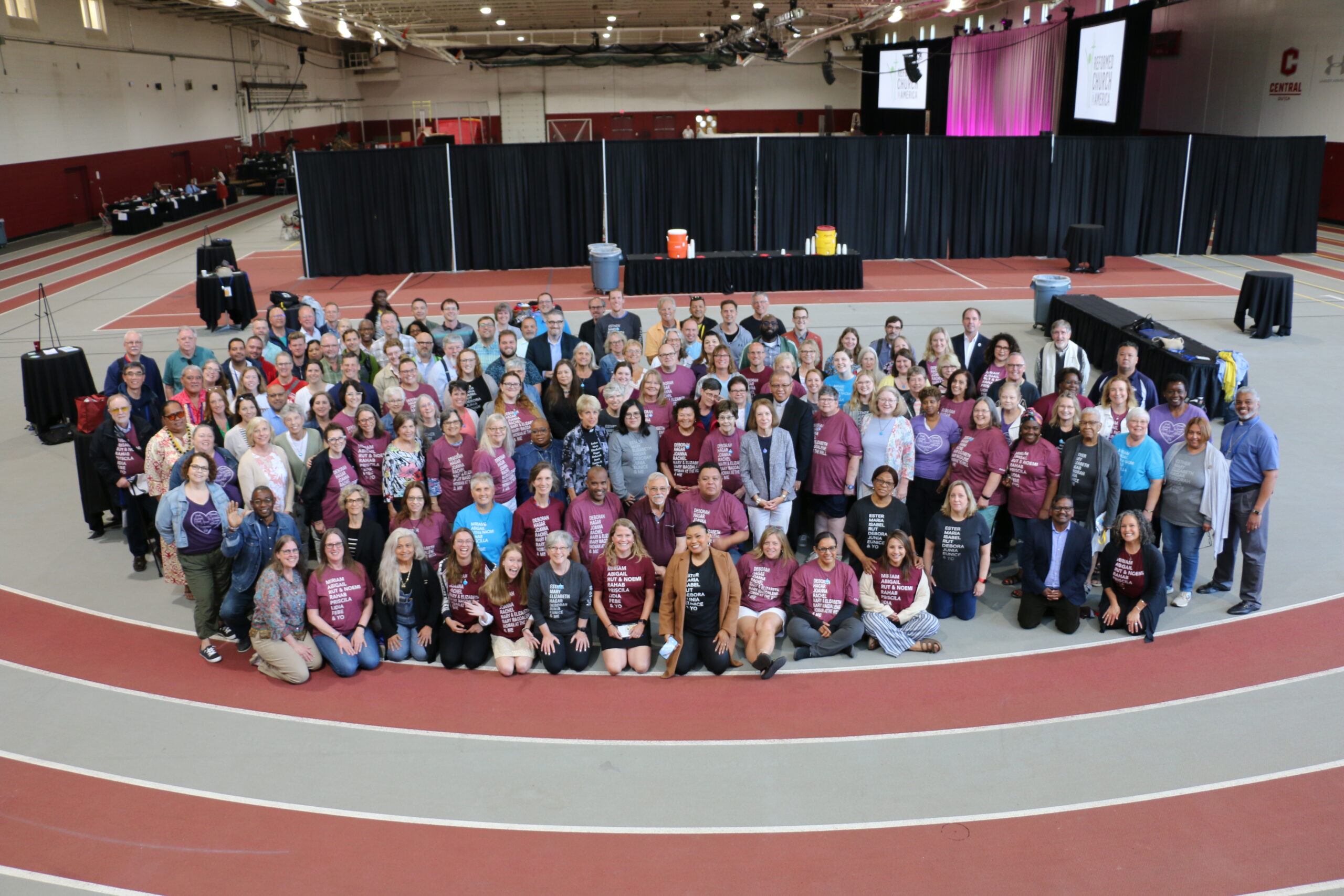
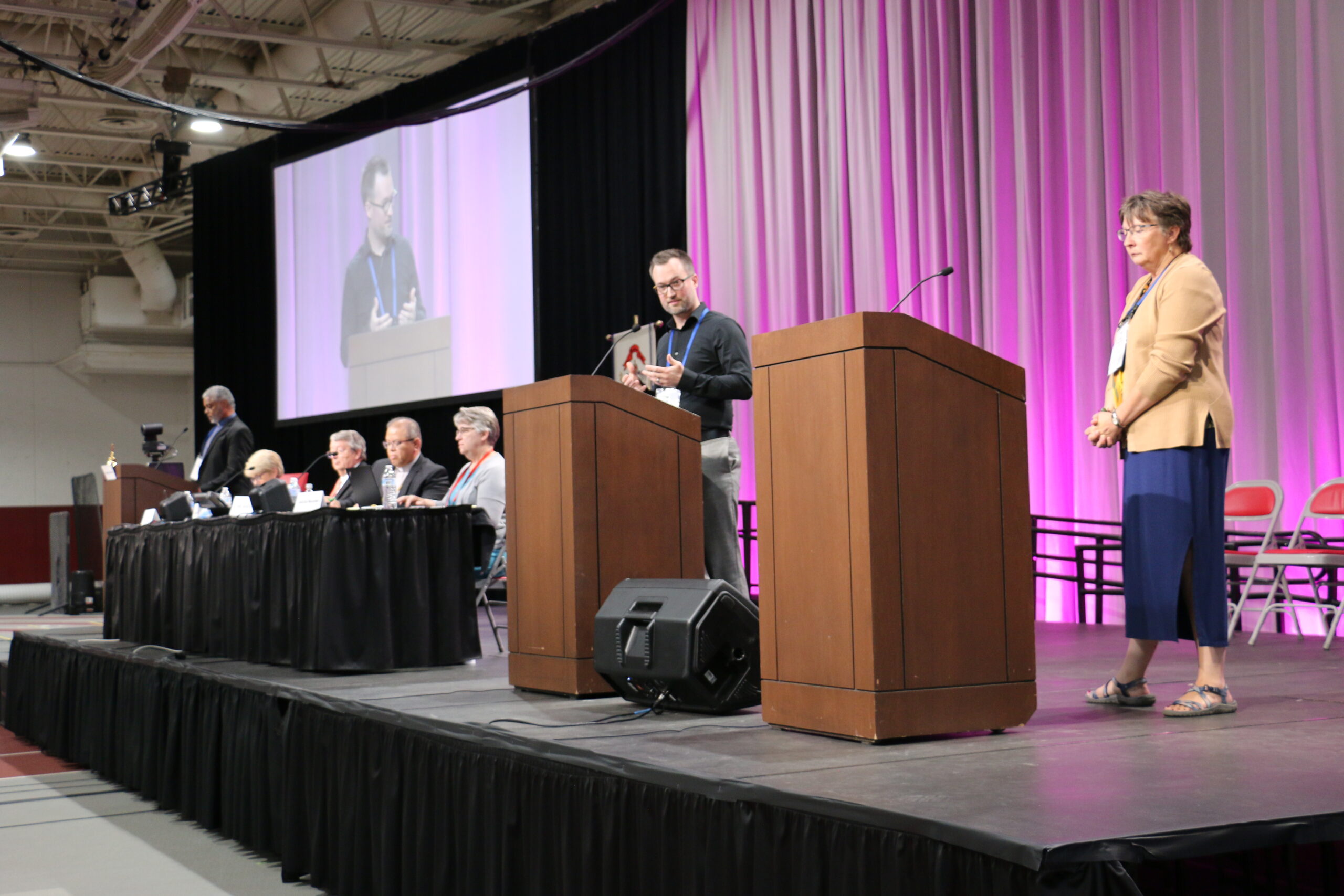
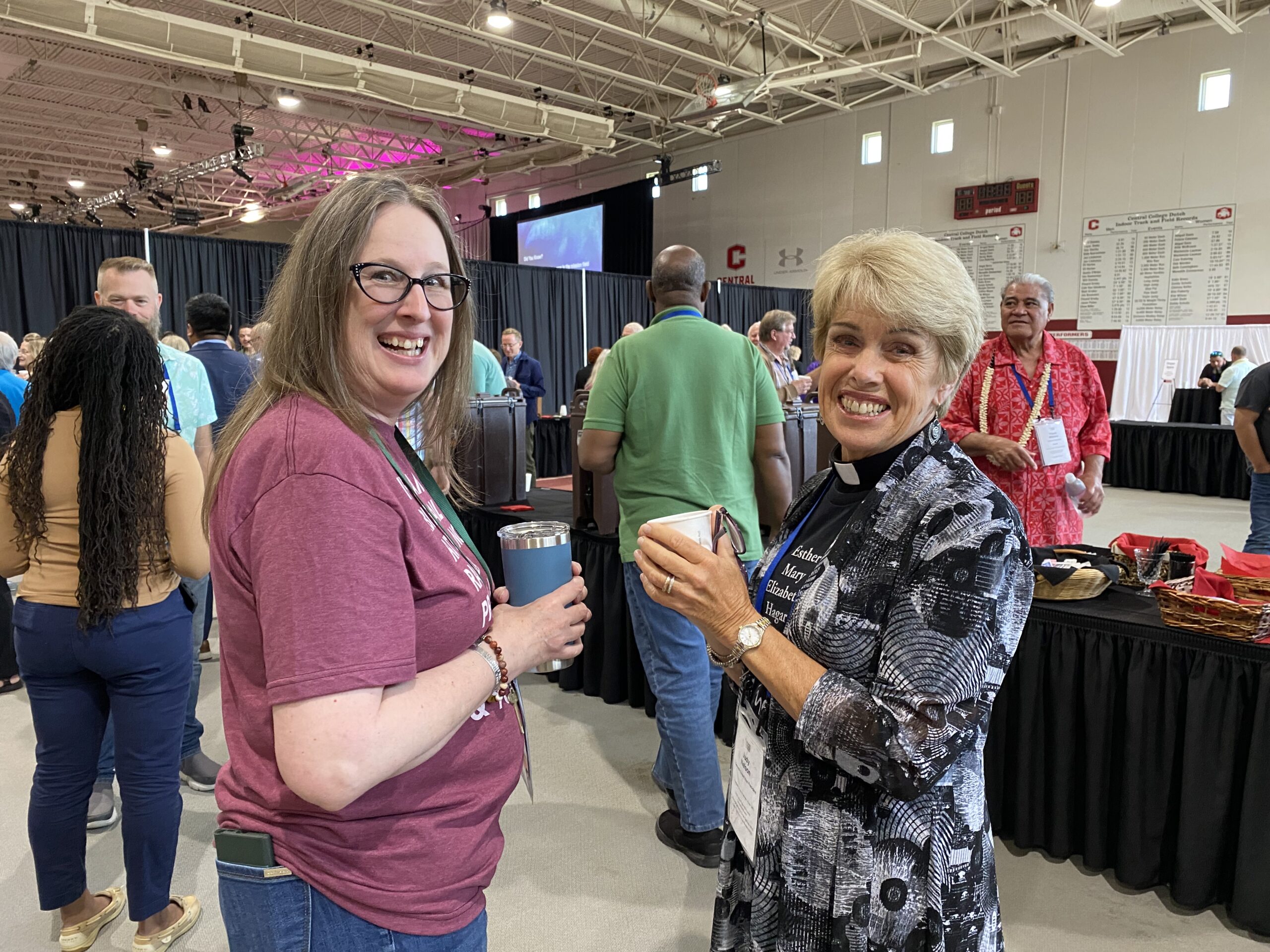
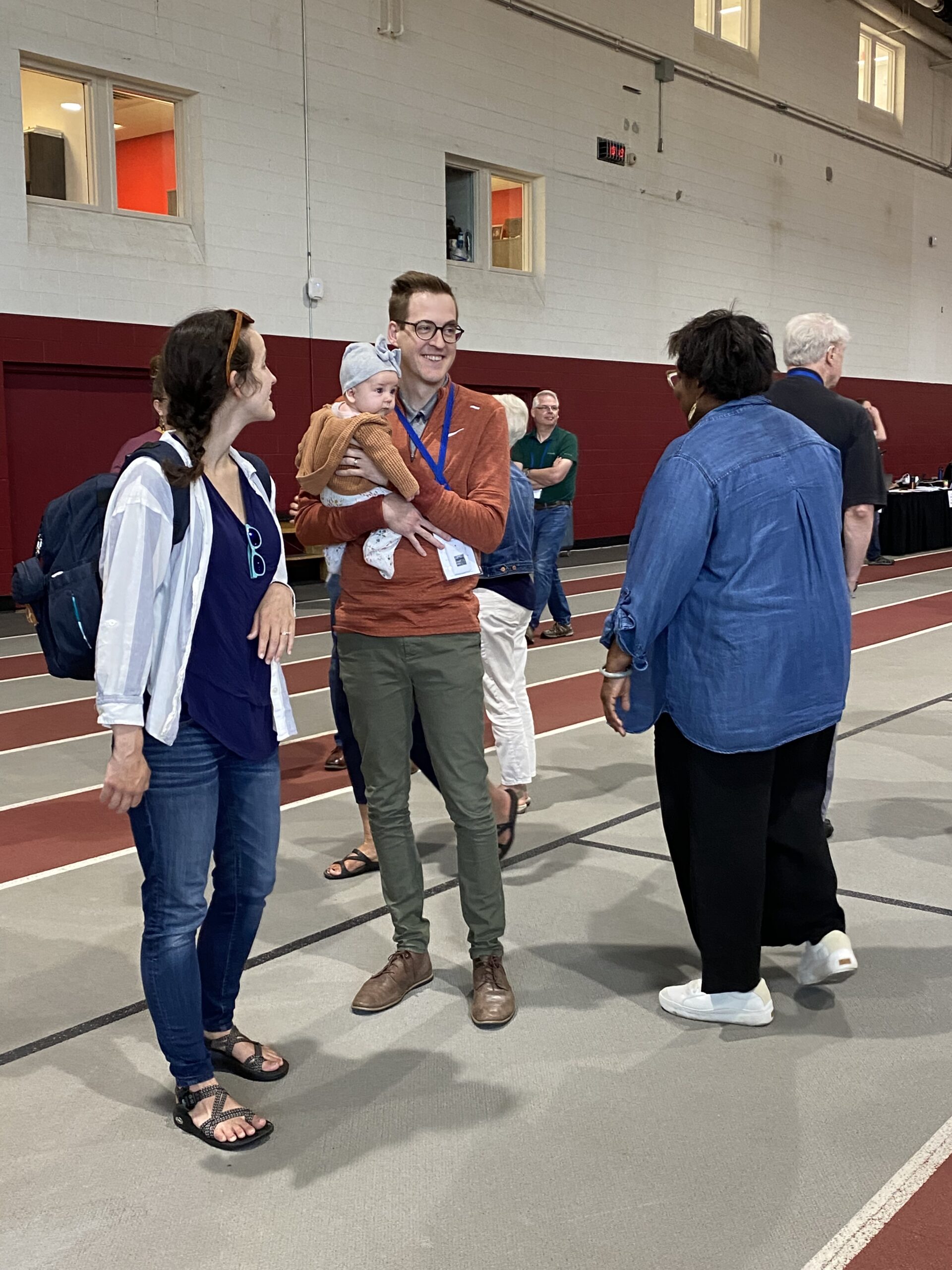
For full coverage of General Synod 2023, visit www.rca.org/synod.


